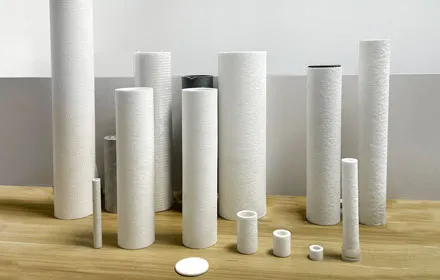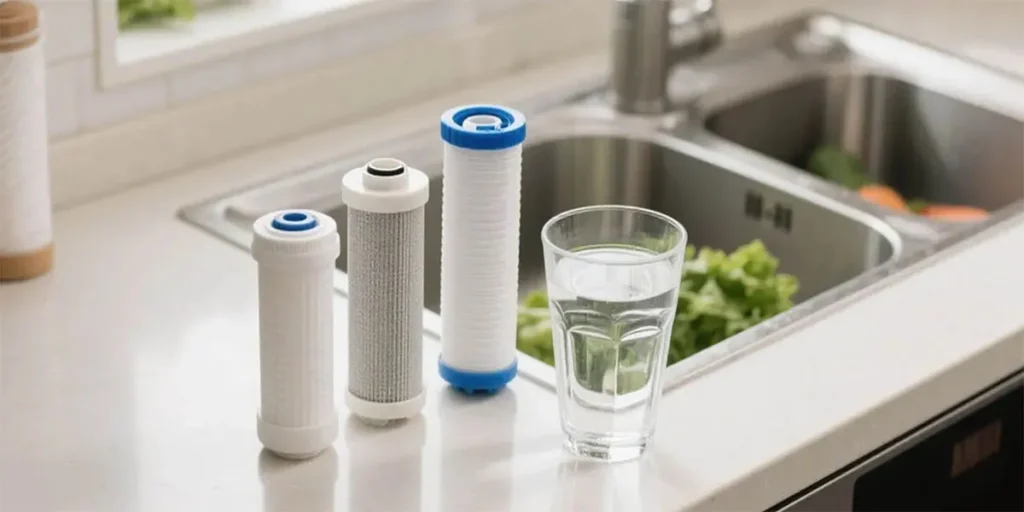In labs and hospitals, using clean, contaminant-free fluids isn’t just important—it’s a must. so, efficient filter cartridges are needed. Whether it’s protecting patients or ensuring accurate research results, filtration systems are absolutely essential. As a top manufacturer and solution provider in the filtration industry, Damai Tech specializes in high-performance filter cartridges made for medical and lab use. But with so many options out there, how do institutions pick the best filters? This article breaks down the key factors to consider when choosing effective filter cartridges, based on Damai Tech’s expertise and product range.
Understanding the Role of Efficient Filter Cartridges

Filter cartridges are designed to remove unwanted particulates, microorganisms, and chemical contaminants from air, gases, or liquids. In medical labs and hospitals, they’re commonly used in:
- Sterile processing of pharmaceuticals
- Water purification systems
- Ventilation and HVAC units
- Medical devices and dialysis systems
These filters help facilities meet strict cleanliness standards while enhancing the reliability and service life of sensitive equipment.
Filtration Efficiency and Pore Size
One of the most crucial selection factors is filtration efficiency. Damai Tech offers cartridges with various absolute-rated pore sizes to suit different filtration needs, For example:
- 0.1 – 0.2 micron: Removes bacteria and viruses (ideal for sterile filtration)
- 0.45 – 1 micron: Suitable for particulate removal in less critical applications
High-efficiency cartridges are rated by their ability to capture contaminants at specified micron levels. Hospitals typically require absolute-rated filters to ensure consistent and verified performance.
Material Compatibility
Labs and hospitals handle a wide range of chemicals and biological agents. Therefore, selecting a cartridge made of compatible materials is essential. Common materials include:
- Polypropylene: Chemically resistant and non-leaching
- PTFE: Excellent for gas filtration and aggressive chemicals
- Activated Carbon Fiber: Highly effective at adsorbing odors, organic compounds, and chlorine; ideal for chemical vapor removal and air purification applications.
Choosing the right material prevents degradation and cross-contamination, ensuring both safety and cost-efficiency.
Compliance and Certifications
Regulatory compliance is non-negotiable. Hospitals and labs often require filter cartridges that comply with:
- FDA regulations (for contact with consumables or medications)
- USP Class VI certification (for biocompatibility)
- ISO 9001 and ISO 13485 (for quality management systems)
Always request documentation to ensure cartridges meet the latest standards and audits.
Operational Conditions
Temperature, pressure, and flow rate are all critical in filter selection. For example:
High-temperature resistance for steam sterilization
High flow rates with pleated or depth filter designs
Stable pressure drops even in long-term operation
Understanding the specific system conditions helps Damai Tech recommend the most suitable and durable filtration solution.
Cost vs. Lifecycle
High-quality efficient filter cartridges may cost more upfront, Rather than focusing solely on the upfront cost, Damai Tech helps facilities assess total cost of ownership by offering:
- Reliable performance with fewer change-outs
- Extended service life
- Reduced equipment downtime
Our technical team provides customized lifecycle analysis to help clients make informed, cost-effective decisions.
Conclusion
Choosing the right efficient filter cartridges is essential for lab and hospital safety, compliance, and performance. By considering filtration efficiency, material compatibility, regulatory standards, and operational needs, facility managers can ensure reliable protection and system reliability.
Contact Damai Tech
Looking for the right and efficient filter cartridges for your lab or medical application?
Please visit www.maifilter.com or contact Damai for personalized recommendations and high-performance, certified solutions.

